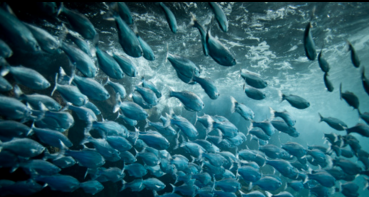It turns out one of the most accurate scenes in all of Pixar history is when Nemo convinces an entire net of fish to escape capture by synchronously swimming down. Not that fish regularly break a boat’s rigging in their effort to escape — in fact, quite the opposite. The truth of that scene lies in its representation of a problem too prevalent in today’s oceans: commercial fishing.
I wrote an article recently describing the insane amount of plastic entering the earth’s oceans every year, presenting it as a major danger to marine life. But a study in Science published in the late 2000s estimates that if nothing is done to stop overfishing, by 2050 plastic pollution won’t matter to marine life because it will mostly all be gone. By that time, the ocean’s populations will have collapsed and we’ll be left with no fish — a fate dreaded by both conservationists and businesspeople.
So what can be done? A few things.
First, we must recognize the extent of the damage we’ve caused. For the past several decades, oceans have been regularly overfished in part due to very little regulation of the practice. Countries are neither required to report the amount of fish they’ve gathered nor provide an accurate number if they do report it. An article in Discovery published last month states that global fishing estimates are regularly millions of metric tons lower than the actual amount of fish being pulled from the ocean. And though fishing has gone down since its peak in 1996, when 130 million metric tons of fish were caught and commercialized, many researchers believe that this is due not to prudence or foresight, but to the fact that there are simply fewer fish to be had. Indeed, marine life is reportedly down by as much as 90 percent, and over 85 percent of fisheries are either currently exploited for resources or recovering from exploitation. As Trace Dominguez of DNews put it, “It’s sort of like we had ten fish, and we ate nine of them. So now what?”
Next, we might immediately require that countries accurately report the number of fish they catch. Or, more radically, it’s been suggested by researchers that we close the ocean for a few years. By “ocean,” they mean more specifically the “high seas,” or all water that is more than 200 miles away from land. This, according to several studies reported in Science and elsewhere, would allow the global fish population to recover from aggressive commercial fishing and would foreseeably benefit the fish industry and conservationists in the long run.
This doesn’t mean fish won’t be widely available for consumption during this time. Fish will certainly get more expensive — though this fact is unavoidable no matter which route the earth’s fish regulators decide to take. I can’t help but emphasize that the alternative is so much worse. If we do nothing, or continue to do the very little we seem to be doing now, the ocean’s fish could be gone from the planet by 2050. Daniel Pauly, a marine biologist of the Sea Around Us project at the University of British Columbia, puts our situation like this: “The world is withdrawing from a joint bank account of fish without knowing what has been withdrawn or the remaining balance.” Let’s hope, before it’s too late, concerted efforts are made locally and abroad to curtail a practice that is doing nothing to secure the future of fish on planet Earth.


